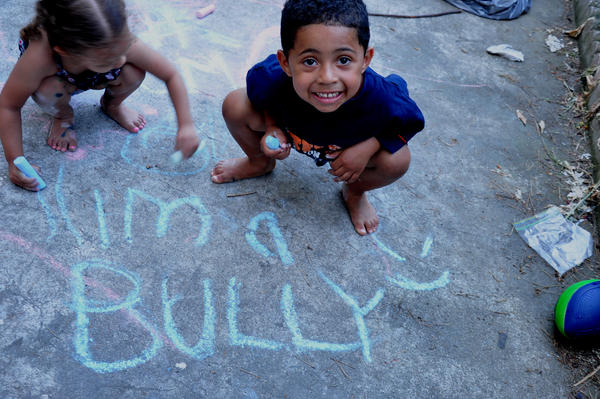
An alarming number of reports on bullying are popping up in the news. A recent report from Georgia described how an 11-year-old boy committed suicide after enduring months of bullying. Parent reports suggest that the school did very little in response to the child’s complaints. In fact, his complaints resulted in further taunting and teasing by his bullies.
We all know how awful bullying can be. Besides the name-calling and teasing, many children are threatened with bodily harm, treated with extreme prejudice, emotionally beaten down by rumors and social ostracizing, and even chronically assaulted.
But there is something worse than the bullying itself.
Bullies have always existed; there will always be bullies, no matter how much grant money schools receive for “Anti-Bullying Programs”. Well-meaning efforts that focus on eradicating bullying may do some good, but it is folly to think that bullies will join the Endangered Species list.
What affects children more than threats, name-calling, bumps and bruises is the amount and type of justice that a child perceives after the bullying. Schools that are too weak or afraid to punish bullies—even hard-nosed punishments, when necessary—signal to students that bullying is not only tolerated, but sanctioned. The school might as well say, “We’re going to try our best to convince you not to bully, but if you fall through the cracks and happen to bully someone, we’ll let it go with a little slap on the wrist.”
No, a slap on the wrist will not suffice for the victim who has been abused directly under the noses of the school officials. Bullies should be treated like criminals—because they are behaving like criminals. If that sounds harsh, remember what bullies do. Bullying often includes assault, battery, threat of assault, battery, or even murder!
If adults did this, they would be thrown in jail, and rightly so. Why do we treat these crimes like peccadilloes that we punish by taking away recess or separating the bully from the victim during P.E.? Or, if we really mean business, we insist on a referral for therapy? Forget that nonsense. Children who bully must be suspended at the very least. If the bullying continues, they should be expelled.
Victims of bullying who perceive that justice is done on their behalf heal far more thoroughly and quickly than those who perceive a lack of zeal for or an inability to administer justice. Children who perceive a lackluster or wimpy response to bullying become increasingly frustrated, trust the school less and less, and eventually determine to take matters into their own hands. Literally.
On the one hand, this is a perfect solution. Children who learn how to defend themselves physically—give as well as they take—feel quite empowered and often stop the bullying in its tracks. However, most children do not have the resources or time to train how to protect themselves. Instead, they go far beyond self-protection. Some begin plotting radical vengeance. Some take out their combined anger and hopelessness against themselves and take their own lives.
Until schools learn how to meet their primary responsibility—protecting the children they are entrusted to teach—parents whose children who have been bullied should continue to call on their school to earnestly seek justice for their child. At the same time, police should be contacted at the first sign of a crime. If the victim has sincerely been threatened with bodily harm or has been maliciously assaulted or battered, make out a police report. If bullying continues without a sufficient response from school officials, contact the state’s Department of Child Protective Services and report the school for neglect. Get it on record. Let the school know that you will hold them accountable for their lack of action. Show them that they should fear YOUR response to their inaction more than the bully’s parent for punishing him/her.





Thank You for speaking out on this topic so candidly...I love this post!
ReplyDelete